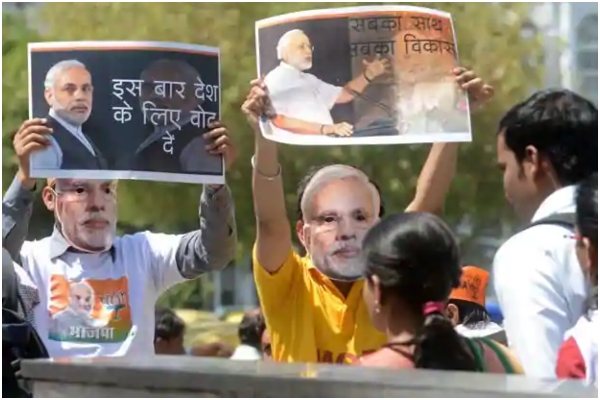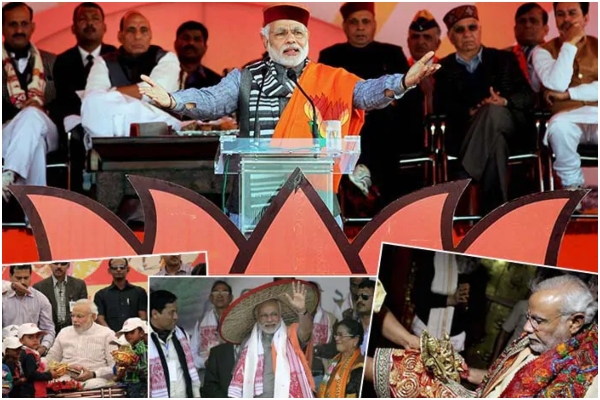Yet India asks- Did Modi deliver Good Governance?
Total Views |
Governance is not about the budget lines, personal issues and equipment approvals. It is about values and vision and strategic leadership! India as a democracy has been tough since independence, may be cause of its vast population, poverty or extensive political hardships. India’s economic rise over the past decades has been a remarkable event, lifting tens of millions out of abject poverty and creating a solid middle class. But is it the story of private success and public failure?
Looking back into India's 73 years of account, let's discern three great milestones- August 1947, India won political freedom; July 1991, it gained economic liberty; and with the election of Narendra Modi in May 2014, the emerging middle class attained dignity. The landslide victory of Modi did anything but invite us to broaden our conception of human dignity and question our prejudices. His success affirmed, for the first time in India’s history, the aspirations of millions who had pulled themselves up into the middle class through their own efforts in the post-reform decades after 1991.

The idea that anyone can aspire to the middle class has now become the new master narrative of our society. It is also with this impatient class that the hope for governance reform lies. Back in Nehru's rule, every Indian believed in his dream of modern, vibrant India. But, as the years went by, the then 'socialists' found that Nehru’s 'mixed economy' was leading to a dead end. Nehru laid the foundations for India's vibrant democracy. But didn't prosperity only began to spread once Nehru’s over-regulating state stepped out of the way?
The modern Indian state is a product of British rule, which, beginning in the mid-nineteenth century, imposed a rule of law with explicit codes and regulations. Though efficient, that state was not accountable to its citizens. That changed in 1947, as independent India took those institutions of governance and made them accountable by developing into a vibrant, if untidy, democracy. In the twenty-first century, true to its history, India is rising economically from the bottom up. But a modern liberal state must have a strong executive to get things done and a strong society to hold the state accountable.
No one quite understands how India’s noisy, chaotic democracy of 135 crore people has become one of the world’s fastest-growing economies. After all, some 60 countries implemented the same reforms as India did. No one imagined that Indian entrepreneurs would respond so well to the reforms, rapidly creating dozens of innovative, hot blooded firms that would compete brutally at home and rapidly stomp onto the global stage. The rise of India it seems is another story. India is a bottom up success. It has risen almost despite the state, unlike China’s 'top-down' triumph, orchestrated by the technocratic elite of an authoritarian state. Time and again, India has shown itself to be resilient and enduring, giving the lie to the old prejudice that the poor are incapable of the kind of self-discipline and sobriety that make for self-government.

Many Indians strongly believe that, in Modi, they finally have someone who can enhance the state’s capacity to act. However, reforming state institutions is much tougher than reforming the economy. Modi recognised this problem when he promised 'minimum government, maximum governance'. He vowed to create an enabling environment that would allow people to do business without stifling red tape and the notorious 'inspector raj'. However, there has been some institutional change. The campaign to improve the ease of doing business is reportedly slashing clearance times and creating healthy competition between the states. The process is being aided by digitising all data and posting it on public websites, making transparent which file is held where. The proposed official ranking of states on different aspects of doing business will soon expose the laggards. Modi has un-gummed the central bureaucracy and broken the paralysis at its core.
However, India’s rise is still a work in progress. While it has become a middle-income economy, it will have to go beyond economic reform and fix its institutions of governance if it wants to truly become a 'developed nation' and avoid what economists call the 'middle-income trap'. India will have to modernise its bureaucracy, police, and judiciary, and improve the quality of government services, in particular, it needs more diligent teachers and health workers, while creating a predictable and transparent environment for doing business.

